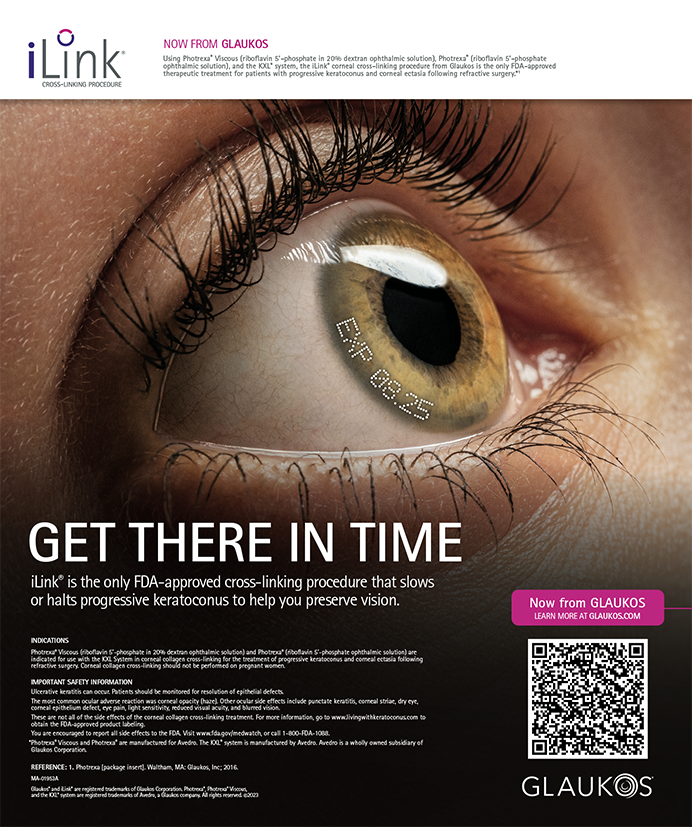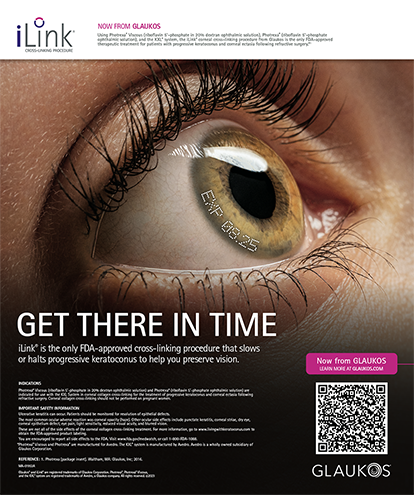Spending Friday, April 25, 2008, at the FDA's Ophthalmic Devices Advisory Panel meeting on LASIK was one of the most educational and valuable experiences of my career. The meeting was all I expected and more. Patients, families, scientists, plaintiff's attorneys, representatives from industry, and doctors gathered to debate the safety of LASIK and postoperative quality of life. All options were on the table when the meeting began, including a moratorium on or an outright ban of the procedure, the FDA's regulation of the practice of medicine, a class action lawsuit, and a new study.
Some 15 LASIK "casualties" (as these individuals call themselves) presented their stories in the public-comment section of the morning. Their presentations were deeply personal, passionate, and moving. There were no charts to look at, no science, and no records. All the same, here were human beings for whom the system, or something, failed.
Ophthalmologists went next: Eric Donnenfeld, MD; Kerry Solomon, MD; Peter McDonnel, MD; Scott Barnes, MD; Steven Schallhorn, MD; and David Tanzer, MD. They gave some of the best presentations I have ever heard them deliver on dry eyes, the procedure's worldwide success rates, and LASIK in the US military. Their science was overwhelming and confirmed what I knew: LASIK was going to be okay.
At the end of the meeting, the panel mainly discussed more detailed labeling and a new quality-of-life study. A moratorium, an outright ban, or a recall of the FDA's approvals of excimer lasers and LASIK was never seriously considered. As to increased regulation of the practice of medicine, I cannot imagine that we need more than state medical boards, our professional societies, the plaintiff's lawyers, and a higher authority, our own ethics.
Hearing that LASIK would survive was not the meeting's take-home message. What I learned was much more personal. Simply put, we (myself included) can do better. Obviously, we can continue to improve patient selection. Many of the casualties complained of dry eyes, and we have greatly enhanced our screening for, understanding of, and treatment of this condition during the last few years. The discussion of ectasia reminded me how much we have learned about this complication as well. Pupillary dynamics, laser physics, corneal biomechanics, and topography were discussed. LASIK has taught us more basic science than any procedure I know.
I also learned, however, that patients need better doctor selection, meaning a more informed way of selecting a surgeon. Some of the unhappy patients would have been flagged as poor candidates for LASIK by most of us. These individuals needed more direct contact with their surgeon, not anyone else. They needed their surgeon to acknowledge their distress, express empathy, take ownership of the problem, and stick with them. They needed to have felt free to get a second opinion and know about other options.
We do not need a moratorium on LASIK, but some of the patients at the FDA's Ophthalmic Devices Advisory Panel meeting would have benefited from a moratorium on the wrong kind of advertising from physicians—the price-first kind that presents LASIK as a commodity. LASIK is not a commodity.
I know I will be a better doctor for attending the meeting in Gaithersburg, Maryland. There will always be cases in which we fail, but we must never give up on these patients or on trying to improve ourselves, our science, and our art. That is really all we can do.


